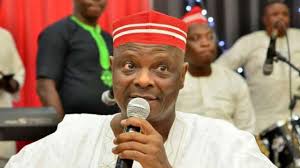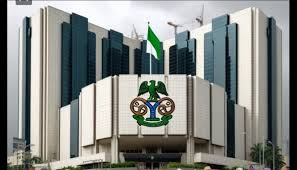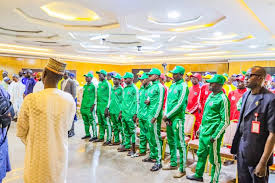Politics
2015: Is Opposition Merger Feasible?
That a serious opposition to the People’s Democratic Party
(PDP) leadership at the Federal level is brewing is no more news. So the three
leading opposition political parties – Action Congress of Nigeria (ACN),
Congress for Progressive Change (CPC) and All Nigeria People’s Party (ANPP) are
in the heart of the plans to dethrone the ruling party.
What might, perhaps, make news is that as much as the
opposition makes plans to overthrow the PDP, developments emerge to remind observers
that such plans may fail like previous ones which dates as far back as the
First Republic.
This is in the face of preparations and strategic plans,
capped by a proposed merger by the ACN, CPC and ANPP. In order to enhance the
achievement of their goal, the parties were said to have decided to commence
talks early enough, three months after the 2011 general elections, precisely.
Their reason was to first address problems that had stalled such moves in the
past.
It was also learnt in their determination, the parties took
into cognizance the fact that they must beat the deadline of the Independent
National Electoral Commission (INEC), which gives 90 days before a general
election for merger.
Section 84 (6) of the 2011 Electoral Act states thus:
“Notwithstanding the provisions of sub-section (2) of this section, no merger
of political parties received by the commission less than 90 days before any
general election in the country shall be considered by the commission”.
In the words of the National Publicity Secretary of the ACN,
Alhaji Lai Mohammed, “The merger of our party, ACN, with the CPC, the All
Nigeria Peoples Party (ANPP) and a splinter group of disenchanted members of
the PDP will come into being very soon.
“I can assure you, the leaders of the parties have been
meeting to consider the proposal, as the only way we can rescue this country
from the PDP,” he said.
In spite of these precautionary measures, however, the
opposition parties acknowledged that one major factor that had stalled previous
pre-2011 election merger plans had been moles planted by the PDP among them.
The National Publicity Secretary of the ANPP, Mr Emma
Eneukwu, admitted this much when he said “We in the ANPP are very serious with
our merger talks. You know that the PDP would not want us to have successful
mergers, they would not want it to succeed and that is why they have repeatedly
planted people among us to scuttle the process, and that is also the reason we
are starting early”.
So, if the PDP can successfully and repeatedly plant moles
in the opposition, what are the chances that it will not happen again? If until
now all they can imply about how their meetings are infiltrated is based on
suspicion, is it not indicative that they are not really prepared for the kind
of merger that could give the PDP a good fight come the 2015 election?
Another factor the opposition parties have to contend with
is the issue of haggling and how to share political positions after they might
have defeated the PDP. This was one of the key factors that also scuttled the
merger attempt before the 2011 elections.
Although they are indications of the coalition parties
having learnt their lessons from the past failures, as clearly stated by a key
member of the opposition who spoke anonymously, there is still the innate fear
among them that who occupies what position will always be a problem, if not
immediately, then later.
Closely related to this is the feeling that beyond merely
opposing the ruling party, the opposition parties are yet to prove that they
would be different if given an opportunity to lead.
As the immediate past National Publicity Secretary of the
PDP, Prof Rufai Ahmed Alkali, put it, “PDP has been in the centre in this
country since 1999 and despite the imperfections of popular democracy, it has
made its own contributions. Sometimes it is difficult to appreciate things,
particularly when we have them.
“I know the leadership of this country under PDP has made
giant strides in so many levels, but that does not mean that the other
political parties will not try to upstage PDP. They have been trying to do
that.
“The blessing is that they think merely being anti-PDP or
fighting PDP is enough for Nigerians to accept them. It is not enough. They
have failed to come up with something that is different, something that is
fresh, something to show Nigerians that they can do better if they are given
the chance.
“So far what we have seen because of court rulings, is the
dogged commitment of the government both under the late Alhaji Umaru Yar’Adua
and under our current President Dr Goodluck Jonathan is the belief in the rule
of law, the judiciary has been given window of opportunities to political
parties, especially opposition, to take over power in so many states of our
country.
“But in those states that the opposition was able to get
judgment like Ondo, Ekiti, Ogun, Edo and the rest, you find that, so far apart
from the populism that they bandy around, they have not done anything close to
what PDP has done. So, in that case they cannot pretend to be better than PDP.
In fact, what they are doing in some of the states, like Ogun, where they held
local government election, was terrible.
“In Lagos, the last local government election held about one
and half years ago was a fiasco, it was one of the most scandalous elections
ever had in this country but because they can make a lot of noise from the
Lagos side the rest of the country kept quiet. So, in that case people are not
fooled”.
Prof. Alkali continued that “they can continue making
alliances and counter alliances but because they are not united to provide any
alternative to this country, to PDP, they are not likely to make any
substantial progress”,
He was, however, quick to add that this should not make
members of PDP to be complacent or to take things for granted because “one of
the greatest mistakes anybody can make is to overestimate his own ability or
underestimate the capability of his enemy or his opponent”.
What is, perhaps, widely believed to be the trump card of
the opposition parties that would expectedly see them win the presidency in
2015, is the perceived disunity among some key members of the ruling party for
various reasons.
One of such reasons is the Northern and South-Eastern
interests. More than any other region of the country, the North has shown
strong interests in reclaiming the presidency in 2015.
Since last year, different northern groups have been holding
meetings to discuss the interests of the region and prominent on their agenda
has been the 2015 general election and the possibility of presenting a
consensus candidate from the region. They are banking on the possibility that
this might generate rancor among the PDP, making it difficult for them to speak
in one voice.
However, speaking in a recent crucial meeting he convened of
the Concerned Northern Politicians, Academicians, Professionals and
Businessmen, Dr Junaid Mohammed, expressed doubt about the possibility of a
consensus northern candidate, saying the proponents of the idea were motivated
by the selfish desire for power, and not the common good of the North or the
nation.
For the South-East, the desire to produce a president has
been protracted. While the zone supported Jonathan in 2011, it is divided on
the possibility of supporting him in 2015.
An indication of this schism manifested when some Igbo
leaders distanced themselves from the call on Jonathan to contest in the 2015
election, shortly after his visit to Anambra.
In a statement signed by top Igbo leaders representing
Oganiru Ndigbo Foundation, including Emeka Maduewesi, Uche Onug Lucas, Maxi
Okwu, Okey Igbokwe, Onyema Uche and Obichi Ikechi, the South-East leaders noted
that “whereas Ndigbo overwhelmingly supported the election of president
Goodluck Jonathan in 2011 elections, we remain of the view that the president
should not be distracted by relevance-seeking political jobbers with such
calls, even when he is yet to deliver on his major promises to Ndigbo”.
But if President Goodluck Jonathan’s Special Adviser on
Inter-Party Relations, Senator Ben Obi, attracts a considerable level of
respect among his kinsmen, he may have resolved the South-East problem when he
recently asked the Igbos to wait for Jonathan’s decision on whether to run or
not before taking action on the 2015 presidential race.
Obi said, “Ohaneze Ndigbo, of which I am a caucus member,
has said it loud and clear that it is the turn of Ndigbo to produce the
president in 2015. Indeed, we are highly interested in the 2015 presidency, but
that is if President Jonathan decides not to run”.
The implication of all these is obvious: unless the
opposition political parties still have their aces face down, waiting for the
opportuned time to turn its face up, all these activities may merely constitute
unnecessary distractions from governance.
As Chairman of the Ijaw National Congress, Joshua
Benamaisia, said “It is too early for Nigerians to start the race for 2015. If
the PDP presents Jonathan, then he is good to run. I think people should cease
from heating up the polity and let’s focus on development and restructuring of
this country.”
Politics
Why Legislature’s Still Executive’s Appendage In Nigeria – State Lawnaker

The lawmaker representing Ipokia/Idiroko Constituency in the Ogun State House of Assembly, Bisi Oyedele, says Nigerian legislature, especially at the state level, has not ceased to be an appendage of the executive because the constitution which guarantees its financial autonomy has not been strictly adhered to.
Hon. Oyedele argued that a legislature that goes cap in hand to the executive cannot perform it functions optimally.
He spoke at a symposium organised by the Forum for Governance Leadership and Value (FGLV) in Abeokuta, Ogun State.
The symposium with the theme: “Enhancing The Value Of The Legislature In Nigeria’s Democratic Process”, was put together in honour of the Senator representing Ogun West Senatorial District, Senator Adeola Olamilekan, who was decorated as the legislative icon in Nigeria.
“The constitution is clear about legislative autonomy in section 121 of the constitution. It states clearly how legislature should be autonomous, independent. Until when that is done in Nigeria, the legislature will continue to become an appendage of the executive.
“I must tell you that if there’s strict adherence to the dictate of the constitution of the Federal Republic of Nigeria, you will begin to see changes in the operationalities of the houses of assembly.
“That’s very important because when you are not empowered financially, when everything you want to do, you have to raise a memo to the governor, we want this; you’re more like at the service of the governor, of which the constitution doesn’t put us under the governor”, Hon. Oyedele said.
He described the legislature as the bedrock of democracy, saying lawmakers should be the ones speaking for the people.
Delivering the lecture, a university don, Prof. Moshood Omotosho, lamented that corruption and lobbying by powerful political ‘cabals’ are major obstacles to effective lawmaking in Nigeria.
The professor of International Relations at the Obafemi Awolowo University, said despite the challenges, the crucial role of the legislature in stabilizing democratic governance through law-making, oversight promoting good governance, amongst others must not be undermined.
He said, “The legislature’s ability to make effective laws can be affected by factors like political gridlock, corruption, and the influence of special interest groups, i.e., lobbying by powerful political mafia in the state, major power brokers, and political cabals.
“The relationship between the executive and legislature can be strained, leading to conflicts that hinder effective governance due to differing priorities and power struggles,” Prof. Moshood explained.
A Federal Commissioner, Public Complaints Commission, Ogun State, Morakinyo Akinleye, who represented Senator Adeola, applauded his strides in lawmaking and empowerment of his constituents.
“The legislature is the closest arm of government to the people. Hon. Solomon Adeola should be commended for his understanding of grassroots needs and his effective committee management,” Akinleye stated.
The convener, Bolaji Adeniji, disclosed that the purpose of the symposium was to have a conversation on how the legislature can add value to the society.
Politics
No Greater Political Sin Than Defecting With Another Party’s Mandate – Kwankwaso

The Leader of the New Nigeria Peoples Party (NNPP), Senator Rabi’u Kwankwaso has accused the members of the party that recently defected to the All Progrssives Congress (APC) of betraying the party and the masses that brought them to power.
He spoke at his Bompai residence in Kano State, when he received supporters of Senator Abdulraham Sumaila (Kano South) who recently declined to defect with him (Kawu Sumaila) to the APC.
“Kano South is a lesson. Voters rejected spaghetti, N200 and Atamfa (wrappers) and were patient to vote for the NNPP. But those who won the election on the party’s ticket decided to abandon the masses to join those who do not have the masses at heart but are only after what they will get for themselves and their families” he stated.
“There is no worse political sin than leaving the party that gave you the opportunity and support but later you abandoned the party. This is the highest level of betrayal,” Senator Kwankwaso added.
Senator Kwankwaso, a former governor of Kano State, appreciated the loyal members for “taking the courage to return to their base,” while predicting that all those who betrayed the Kwankwasiyya Movement would regret their political actions sooner or later.
“Fighting Kwankwasiyya is not an easy task, they will not know until when they engage in the fight,” he said.
Speaking on behalf of the supporters, Muntari Fararawa, said that they came to his home to inform him of their refusal to join the APC with their senator.
“We thought it wise to return home so as to continue to propagate the ideals of the Kwankwasiyya Movement and the NNPP as well as to contribute our quota to the development of our dear state.
“We hope that we will be accepted back and reintegrated into the Kwankwasiyya Movement and the NNPP to enable us to enjoy the same rights and privileges as other members,” he said.
Politics
Tinubu’s Visit To Anambra Healing, Reconciliation Message To Igbo – Arthur Eze

Business mogul and elder statesman, Prince Arthur Eze, has hailed President Bola Tinubu for his historic visit to Anambra State and the Southeast zone, describing it as a clear message of healing and reconciliation to the Igbo.
The business magnate stated this in a letter he sent to the president, a copy of which was made available to newsmen, upon his return to Nigeria from Venezuela, where he had gone for a business endeavour.
“I have seen the joy and excitement elicited amongst our people by your visit to Anambra State.
“To this end I write to thank you specially for the visit to Anambra and by extension to the Southeast,” Prince Eze wrote.
He noted that the visit has gone a long way in healing the civil war wounds of South Easterners and assured the people that there is hope for proper reconciliation and reintegration.
“Today, it has entered the annals of Nigeria’s chequered history that you are the first President of the country, from the Southwest who has taken this historic initiative to visit the Southeast after the bitter civil war with a clear message of reconciling the Igbo with other parts of the nation.
“Nigerians have not forgotten the bitter civil war and its painful relics with its tribal cleavages and dimensions. This visit by you is therefore a giant leap forward and a clear signal that the wounds of that unfortunate era is healable.
“Your pronouncements during the visit are vivid indications that you are indeed a nationalist and a bridge builder who has risen above tribal dogmatism.
“Your actions by this singular visit has sent a message of hope of complete reintegration and reconciliation to the Igbo race.
“This is monumental and a generational landmark that we would continue to cherish and value,” he said.
Prince Eze also expressed appreciation to the president for appointing Igbo sons and daughters into key positions in his government.
“We are appreciative to the genuine concern you have always shown as the President of the Federal Republic of Nigeria, for the cause of the Igbos. You have appointed Igbo sons and daughters to key positions as a mark of recognition for the entire Igbo people of this country.
“You also gave us important ministerial positions which no President before you had done, signaling your appreciation of the people of Southeast extraction.
“I also commend your robust appreciation of the laudable economic and infrastructural development projects accomplished by the Anambra State government under the able leadership of the amiable Professor Charles Chukwuma Soludo. Soludo is a genuine and sincere personality, and every Igboman will support him. Be rest assured that he will ensure massive support for you from the Southeast in the 2027 elections”.
While describing President Tinubu as a true nationalist, Prince Eze pledged his support and those of other Igbo for the re-election of the president in 2027.
“I therefore make bold to say that Igbos, wherever they may reside in this country now have very concrete and genuine reasons to support you and work actively for your re-election in 2027 so that you can do more for the Igbos.
“Once again, I thank you immensely, my dear President, Dike Si’mba!” Prince Eze said.
-

 News23 hours ago
News23 hours agoSERAP Gives CBN Seven Days Ultimatum To Disclose Allocation Disbursements To 774 LGAs
-

 Editorial16 hours ago
Editorial16 hours agoEnd The Senseless Killings
-

 Sports23 hours ago
Sports23 hours agoTeam Sleeps At Facility After Attack
-

 Business16 hours ago
Business16 hours agoNigeria’s Debt Servicing Gulped N696bn In Jan – CBN
-

 News17 hours ago
News17 hours agoTroops Eliminate Boko Haram Fighters, Capture Weapons In Sambisa Offensive
-

 Rivers15 hours ago
Rivers15 hours agoExpert Demands Full Implementation Of PIA In N’Delta Oil Communities
-

 News23 hours ago
News23 hours agoFalana Demands Probe Of Alleged Diversion Of $3.4bn IMF Loan
-

 Politics16 hours ago
Politics16 hours agoYouth Group Warns Against Politicising Governance In Zamfara

